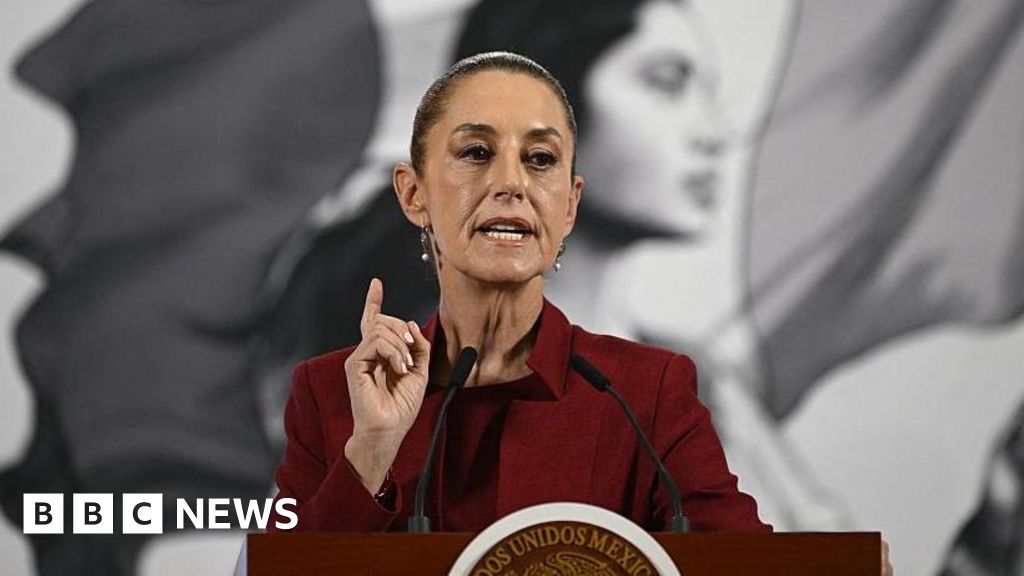Mexico Sues Google: A "Gulf of America" Naming Dispute
Mexico has filed a lawsuit against Google, accusing the tech giant of misrepresenting the geographical location of the Gulf of Mexico on its maps and other services. The country claims Google's use of the term "Gulf of America" instead of "Gulf of Mexico" is a deliberate attempt to erase Mexico's historical and cultural connection to this vital body of water. This move has ignited a significant debate about geographical accuracy, national identity, and the power of tech companies to shape global narratives.
The Heart of the Matter: More Than Just a Name
The dispute isn't simply a semantic argument over nomenclature. Mexico argues that the consistent use of "Gulf of America" by Google, particularly in English-language versions of its products, undermines the country's long-standing claim and historical ties to the Gulf. This strategically important waterway plays a crucial role in Mexico's economy, its maritime borders, and its national identity. The Mexican government views Google's actions as an attempt to subtly, yet effectively, diminish Mexico's influence and sovereignty in the region.
Google's Response and the Broader Implications
Google has yet to issue a formal, detailed response to the lawsuit, but early statements suggest the company maintains the use of "Gulf of America" is intended to be more inclusive and geographically accurate for a broader audience. However, Mexico contends that this explanation overlooks the historical context and the deeply entrenched cultural significance of the name "Gulf of Mexico" for its citizens.
This legal battle raises broader questions about the responsibility of tech giants in accurately representing geographical information and respecting national identities. With the vast reach of Google Maps and other Google services, even seemingly minor discrepancies in naming conventions can have significant implications for cultural representation and geopolitical narratives. The case highlights the increasing influence of tech companies in shaping perceptions of the world and the need for greater accountability in how they present information.
Beyond the Legal Battlefield: A Clash of Narratives
The dispute has sparked intense debate online and in the media, with many commentators weighing in on the importance of respecting established geographical nomenclature and the potential for technological platforms to subtly reshape our understanding of the world. Social media is abuzz with opinions, highlighting the emotional resonance this case has with Mexican citizens.
-
Cultural Identity: Many Mexicans feel that the change represents a disregard for their history and cultural identity. The Gulf of Mexico is deeply intertwined with Mexico’s narrative, from its colonial past to its modern economy.
-
Geopolitical Implications: Some analysts see the lawsuit as a larger geopolitical statement, highlighting the ongoing power struggle between nations and the influence of major tech corporations.
-
Accuracy vs. Inclusivity: The debate also raises questions about the balance between achieving geographical accuracy and promoting inclusivity in naming conventions.
What's Next? The Future of the Lawsuit and its Ramifications
The outcome of this lawsuit will have far-reaching consequences, not just for Mexico and Google but for other countries and tech companies. It could set a precedent for how tech giants handle geographically sensitive naming conventions and how governments can assert their authority in the digital sphere. The case is likely to be closely watched by geographers, international relations experts, and legal scholars worldwide. It will undoubtedly influence future debates about the responsibility of tech companies in representing geographic information accurately and respectfully.
Call to Action: What are your thoughts on this developing story? Share your perspective in the comments below. How should tech companies balance accuracy and inclusivity when representing geographical locations? Let's discuss!

